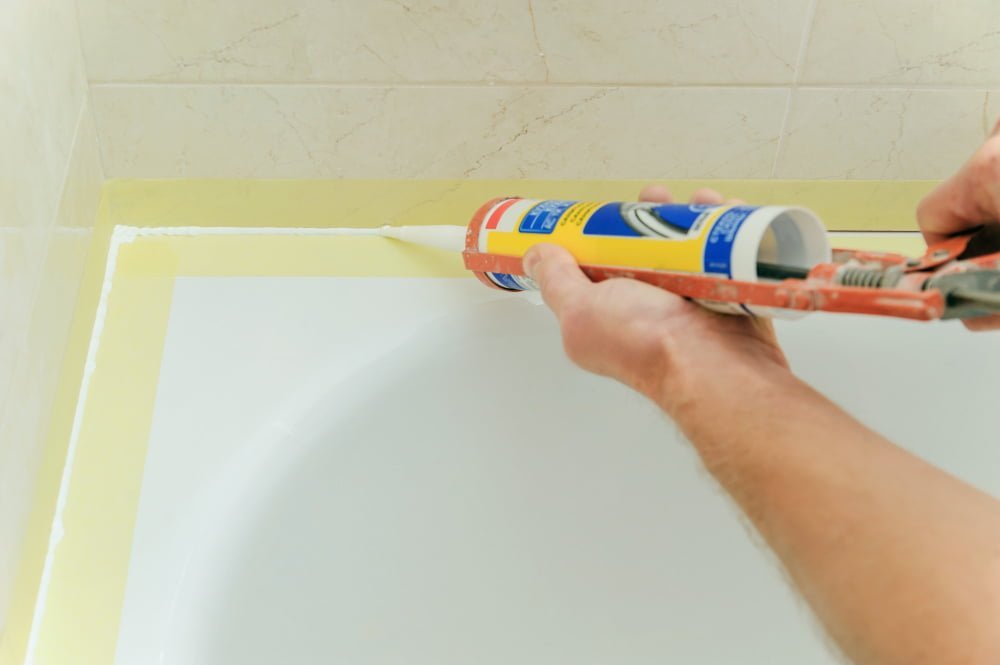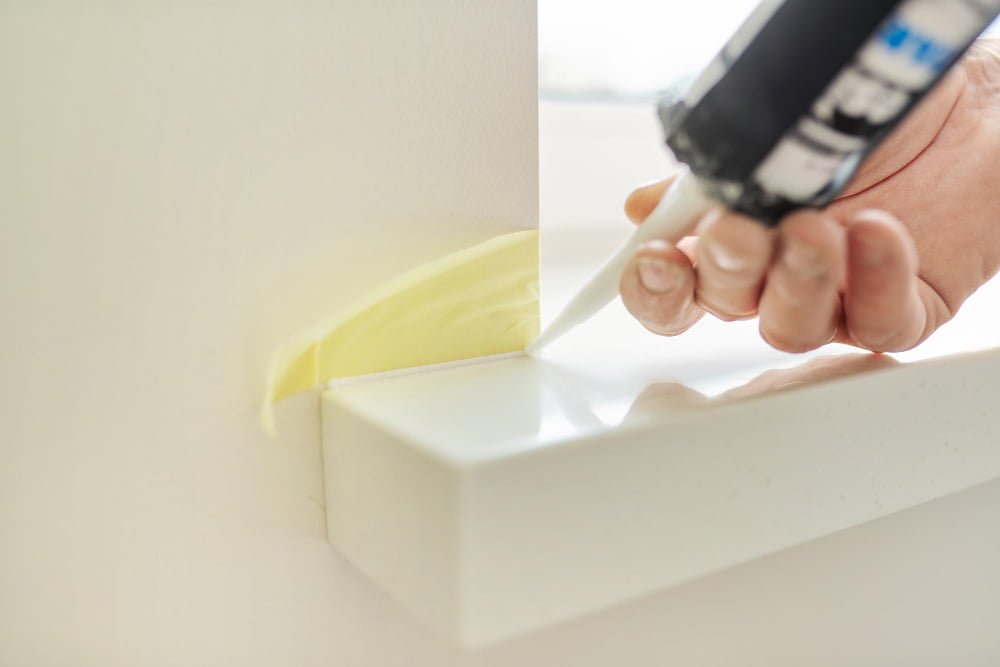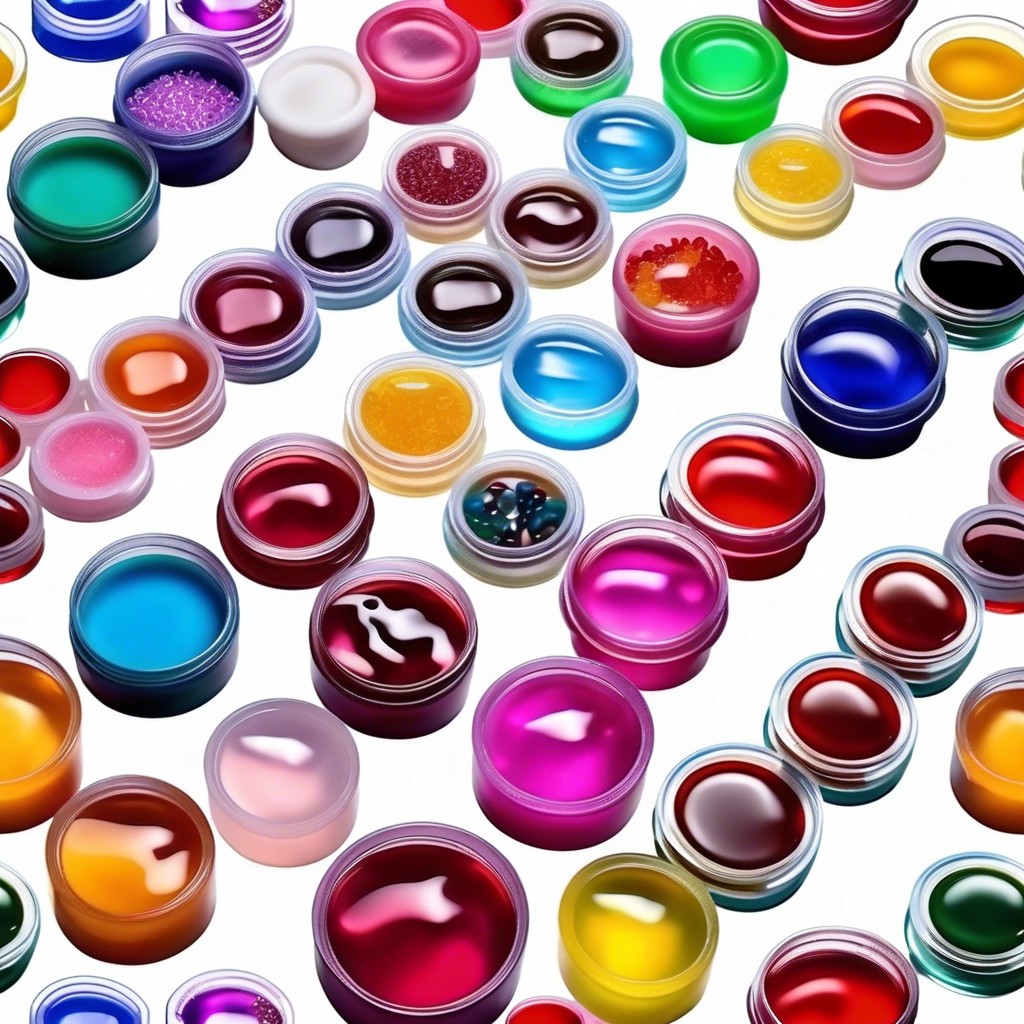Yes, silicone is a polymer.
Have you ever wondered what makes silicone such a versatile material in the construction industry? I remember the first time I encountered silicone on a job site. It was my first day as an apprentice, and my boss handed me a tube of clear gooey substance and told me to seal up some gaps in the bathroom tiles.
As I squeezed out the silicone, I couldn’t help but wonder what it was made of and how it worked.
As I progressed through my career in construction, I learned more about this mysterious substance. One question that kept popping up was whether or not silicone is a polymer.
If you’re anything like me, you might have asked yourself that same question too.
In this blog post, we’ll dive deep into the world of polymers and explore whether or not silicone fits into this category. So buckle up and let’s get started!
Understanding Polymers

To understand whether silicone is a polymer, we first need to understand what polymers are. Polymers are large molecules made up of repeating subunits called monomers.
These monomers can be identical or different and can link together in various ways to form long chains or networks.
As I continued my career in construction, I encountered many materials that were polymers such as plastics, rubber, and adhesives. However, when it came to silicone – the material that had always piqued my curiosity – I wasn’t sure if it was a polymer or not.
So let’s explore this question further: Is silicone really a polymer?
Silicone: A Brief Overview

Silicone is a synthetic material that has become ubiquitous in the construction industry. It’s used for everything from sealing gaps and joints to creating molds and casting materials.
Silicone is known for its flexibility, durability, and resistance to extreme temperatures.
But what exactly is silicone? Is it a plastic or rubber? The answer lies in its chemical composition. Silicone belongs to a class of compounds called silicones, which are made up of silicon atoms combined with oxygen, carbon, hydrogen or other elements.
Silicones can be classified as polymers because they consist of long chains of repeating units called monomers. However, not all silicones are considered polymers since some may have shorter chain lengths that do not meet the definition criteria.
So where does this leave us when it comes to answering whether silicone is indeed a polymer? Let’s explore further!
Polymer Vs Silicone: Key Differences

To understand whether silicone is a polymer, we first need to define what a polymer is. A polymer is a large molecule made up of repeating subunits called monomers.
These monomers are linked together through chemical bonds to form long chains or networks.
Silicone, on the other hand, is not technically considered a true polymer because it does not have repeating units of the same type of molecule. Instead, it’s made up of alternating silicon and oxygen atoms with various organic groups attached to them.
While silicone may not fit into the traditional definition of polymers, it shares many similar properties such as flexibility and durability that make them useful in construction applications like sealants and adhesives.
So why does this matter? Understanding these key differences between polymers and silicone can help us better appreciate their unique characteristics when working with them on job sites. It also helps us understand how they function differently in different applications so that we can choose the right material for each task at hand.
While silicone may not be classified as a true polymer due to its unique molecular structure; however,it still has many similarities with traditional polymers which makes it an important material in construction industry today!
Properties of Silicone Polymers

Silicone is a synthetic material that has become ubiquitous in the construction industry. It’s used for everything from sealing gaps to creating molds and even as an adhesive.
But what exactly makes silicone so versatile? To answer this question, we need to understand the properties of silicone polymers.
Silicone polymers are made up of repeating units called siloxanes, which consist of silicon atoms bonded with oxygen atoms. These bonds give silicone its unique properties such as high thermal stability, water resistance, and flexibility.
As I continued my journey in construction and learned more about materials science, I discovered that not all polymers are created equal. While some have similar characteristics to silicone like polyurethane or epoxy resins – they don’t quite match up when it comes to certain applications where temperature extremes or exposure to harsh chemicals come into play.
Understanding these differences can make all the difference when selecting materials for specific projects on job sites – especially those involving sensitive equipment or hazardous environments where safety is paramount!
So while there may be other polymer options out there- it’s clear why Silicone remains a popular choice among builders everywhere!
Applications of Silicone in Construction

Now that we’ve established what silicone is and whether or not it’s a polymer, let’s take a closer look at its applications in the construction industry. Silicone has become an essential material for many construction projects due to its unique properties.
One of the most common uses of silicone in construction is as a sealant. As I mentioned earlier, my first encounter with silicone was using it to seal gaps between bathroom tiles.
But this versatile material can also be used to seal windows, doors, and other openings where air or water infiltration could occur.
Silicone is also used as an adhesive in various building materials such as glass, metal panels and roofing systems. It provides excellent bonding strength even under extreme weather conditions like high temperatures or heavy rainfalls.
Another application of silicone in construction includes coatings for roofs which provide protection against UV rays from sunlight while maintaining their color over time without fading away quickly compared to other materials like asphalt shingles that tend to fade after some years exposed under direct sunlight.
Silicone has proven itself useful across different areas within the Construction Industry because of its versatility; from sealing gaps between tiles all through providing long-lasting roof coatings that protect buildings against harsh environmental factors.
Recap




